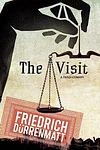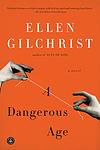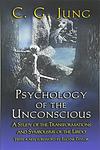The Greatest Danish, Swiss Books Since 1900
Click to learn how this list is calculated.
This list represents a comprehensive and trusted collection of the greatest books. Developed through a specialized algorithm, it brings together 305 'best of' book lists to form a definitive guide to the world's most acclaimed books. For those interested in how these books are chosen, additional details can be found on the rankings page.
Genres
Countries
Date Range
Reading Statistics
Click the button below to see how many of these books you've read!
Download
If you're interested in downloading this list as a CSV file for use in a spreadsheet application, you can easily do so by clicking the button below. Please note that to ensure a manageable file size and faster download, the CSV will include details for only the first 500 books.
Download-
1. Out of Africa by Isak Dinesen
The book is a memoir that recounts the author's experiences and observations living in Kenya, then British East Africa, from 1914 to 1931. It is a lyrical meditation on her life amongst the diverse cultures and wildlife of Africa. The author shares her trials and tribulations of running a coffee plantation, her deep respect for the people and land of Africa, and her intimate understanding of the subtle nuances of African culture and society.
The 326th Greatest Book of All Time -
2. I'm Not Stiller by Max Frisch
The book is a profound exploration of identity and the human condition, revolving around a man who is arrested upon his return to his home country, Switzerland, after spending time in America. Although he insists he is not the man, Stiller, that everyone believes him to be, his protests are ignored. The story unfolds as he writes in his prison cell, reflecting on his past life and relationships, and grappling with the question of who he truly is. It's a thought-provoking narrative that challenges conventional notions of selfhood and personal identity.
The 684th Greatest Book of All Time -
3. Jakob Von Gunten by Robert Walser
This novel is a first-person account of a young man who leaves his privileged life to enroll at a school for servants in Berlin. The protagonist's observations and experiences in the school, his interactions with the headmaster and other students, and his internal struggles and reflections form the crux of the story. The narrative, imbued with irony and dark humor, explores themes of power, submission, individuality, and the absurdity of societal norms and expectations.
The 763rd Greatest Book of All Time -
4. Smilla's Sense of Snow: A Novel by Peter Høeg
The novel revolves around Smilla Jaspersen, a woman of Greenlandic-Inuit and Danish descent living in Copenhagen, who investigates the mysterious death of a small Inuit boy who falls from the roof of their apartment building. Despite the authorities ruling it as an accident, Smilla's understanding of the Arctic snow and ice, her intuition, and her relentless pursuit for truth lead her to uncover a much darker, dangerous conspiracy involving powerful corporations and government agencies.
The 1044th Greatest Book of All Time -
5. Memories, Dreams, Reflections by Carl Jung
This book is an autobiography of a renowned psychologist who shares his life experiences, insights, and the development of his theories. The narrative delves into his childhood, his career, his relationship with Sigmund Freud, and his exploration into the human psyche. It also provides an in-depth look at the author's dreams and visions, which greatly influenced his work, and his thoughts on subjects such as life after death, reincarnation, and the collective unconscious.
The 1124th Greatest Book of All Time -
6. Belle du Seigneur by Albert Cohen
"Belle du Seigneur" is a tragic love story set in the 1930s, revolving around a high-ranking Jewish official who works for the League of Nations and his passionate affair with a married Swiss aristocrat. The narrative delves deep into their intense relationship, exploring themes of obsession, self-destruction, and existential despair, all set against the backdrop of the impending Second World War. The novel is also notable for its satirical portrayal of diplomatic life and its exploration of Jewish identity.
The 1149th Greatest Book of All Time -
7. Homo Faber by Max Frisch
"Homo Faber" is a novel about a man named Walter Faber, a highly rational and logical Swiss engineer who believes strongly in technology and progress. His life is turned upside down when he survives a plane crash in the Mexican desert, falls in love with a young woman who turns out to be his daughter, and then loses her to a tragic death. This series of events forces him to question his faith in technology and confront the irrationality of life.
The 1231st Greatest Book of All Time -
8. Seven Gothic Tales by Isak Dinesen
"Seven Gothic Tales" is a collection of short stories set in the 19th century, each with a unique blend of humor, horror, and romanticism. The tales, steeped in supernatural elements and psychological depth, explore themes of love, betrayal, and identity. The stories are populated by a variety of characters from different social classes and backgrounds, each facing their own moral dilemmas and existential crises. The author's vivid descriptions and atmospheric settings contribute to the gothic tone of the book.
The 1855th Greatest Book of All Time -
9. On Death and Dying by Elisabeth Kübler-Ross
This groundbreaking book explores the five stages of grief experienced by terminally ill patients. The author, a Swiss-American psychiatrist, introduces the concept of the five stages: denial, anger, bargaining, depression, and acceptance, which has since been universally recognized and applied in various fields. The book is based on the author's series of interviews with dying patients, providing an empathetic and insightful look into the emotional and psychological experiences of those facing death.
The 2080th Greatest Book of All Time -
10. Moravagine by Blaise Cendrars
The novel follows the adventures of an eccentric, violent, and mentally unstable protagonist who is released from an asylum by his psychiatrist. The pair embark on a chaotic journey across Europe and America, encountering a variety of strange and often dangerous situations. The narrative explores themes of insanity, violence, and the human condition, offering a dark and surreal critique of modern society.
The 2117th Greatest Book of All Time -
11. The Pledge by Friedrich Dürrenmatt
This book is a gripping crime story that delves into the complexities of human nature and the limitations of the justice system. It follows the journey of a retired police detective who becomes obsessed with solving the murder of a young girl, promising the victim's parents to find the perpetrator. As he delves deeper into the investigation, his methods become increasingly unconventional, straying from standard police procedure and relying instead on a meticulously crafted plan to catch the killer. The narrative challenges the conventional detective story format, exploring themes of obsession, the unpredictability of life, and the moral ambiguities of justice, ultimately questioning whether the ends justify the means in the pursuit of truth.
The 2306th Greatest Book of All Time -
12. Man in the Holocene by Max Frisch
The book is a narrative about an elderly man who, isolated in his home during a rainstorm in the Swiss Alps, reflects on his life, mortality, and the human condition. The protagonist spends his time reading encyclopedic entries and clipping them to his wall, creating a mosaic of human knowledge and history. The narrative is interspersed with these entries, presenting a blend of fiction and non-fiction, and exploring themes of memory, time, and the fleeting nature of human existence.
The 2318th Greatest Book of All Time -
13. Anecdotes of Destiny by Isak Dinesen
"Anecdotes of Destiny" is a collection of five short stories, each with a unique exploration of human nature, destiny, and the complexities of life. The tales range from a woman who must choose between three suitors, to a young man who gambles his fortune on a single pearl, to a couple who make a pact with the devil. The stories are rich in symbolism and metaphoric language, offering profound insights into the human condition and the mysterious workings of fate.
The 2348th Greatest Book of All Time -
14. The Judge and His Hangman by Friedrich Dürrenmatt
This book is a crime novel set in Switzerland, where a police lieutenant is tasked with solving the murder of his former colleague. The narrative explores themes of justice, revenge, and the blurred lines between good and evil. The lieutenant, despite being terminally ill, is determined to solve the case and in the process, he uncovers a web of corruption and deceit that forces him to question his own morality and the nature of justice. The story is a philosophical examination of the criminal justice system and the moral dilemmas faced by those who enforce the law.
The 2443rd Greatest Book of All Time -
15. Love in the Western World by Denis de Rougemont
The book is an in-depth exploration of the concept of love as it has evolved in Western society, tracing its development from the myth of Tristan and Iseult to modern times. The author argues that the idea of passionate, romantic love that is prevalent in the West is fundamentally a form of destructive passion, often leading to pain and tragedy. The book also delves into the socio-cultural aspects of love, examining how societal norms and expectations shape our understanding and experience of love.
The 2703rd Greatest Book of All Time -
16. The Long Journey by Johannes V. Jensen
This novel is a sweeping historical narrative that follows the adventurous life of a young Danish man, from his humble beginnings in a rural village to his travels across the globe. Set against the backdrop of the late 19th and early 20th centuries, it explores themes of evolution, human progress, and the quest for knowledge. Through vivid descriptions and a richly detailed plot, the protagonist's journey is a metaphor for the human experience, reflecting the struggles, discoveries, and aspirations of an era on the brink of modernity. The narrative is both a personal coming-of-age story and a broader commentary on the forces shaping human history.
The 2845th Greatest Book of All Time -
17. Mars by Fritz Zorn
"Mars" is a poignant autobiographical account of a young man's life and his battle with terminal cancer. The narrative delves into the author's affluent yet emotionally barren upbringing in a Swiss suburb, which he refers to as "Mars," symbolizing its cold and alienating environment. The book is a critique of his repressive bourgeois society, which he believes contributed to his psychological and physical illness. Through introspective and often angry prose, the author explores themes of alienation, the search for identity, and the impact of societal norms on individual well-being. His struggle is not only against the disease but also against the cultural and familial constraints that stifled his emotional development.
The 3158th Greatest Book of All Time -
18. Grid Systems In Graphic Design by Josef Müller-Brockmann
This book is a seminal guide to graphic design and typographic composition, focusing on the use of grid systems as a foundational tool for ensuring visual coherence and hierarchy across various design projects. It provides designers with a methodical approach to organizing text and images in a clean, logical, and aesthetically pleasing manner. Through systematic arrangement, the grid serves as an essential framework that can be applied to a wide range of design work, from print media to digital interfaces. The book delves into the principles, applications, and benefits of grid systems, offering practical advice, examples, and clear illustrations to help designers harness the power of grids to create effective, impactful visual communications.
The 3165th Greatest Book of All Time -
19. Early Spring by Tove Ditlevsen
"Early Spring" is a poignant autobiographical account of a young girl's coming of age in a working-class neighborhood of Copenhagen during the 1920s and 1930s. The narrative delves into the complexities of her family life, her struggles with identity and self-worth, and her passionate pursuit of writing as a means of escape and self-expression. The book captures the emotional landscape of the protagonist as she navigates the challenges of adolescence, the pressures of societal expectations, and her own burgeoning literary ambitions, all set against the backdrop of a changing Denmark. Through her introspective and lyrical prose, the story offers a deeply personal exploration of growth, resilience, and the relentless pursuit of one's dreams amidst adversity.
The 3462nd Greatest Book of All Time -
20. The Dangerous Age by Karin Michaelis
"The Dangerous Age" is a reflective epistolary novel that delves into the emotional and psychological journey of a middle-aged woman who, upon reaching her forties, confronts the societal pressures and personal disillusionments that come with aging. Through a series of candid letters, she shares her experiences of estrangement from her husband, the challenges of maintaining her identity and desires, and her struggle to navigate the expectations placed upon women of her age. The protagonist's introspective correspondence reveals the inner turmoil and liberation that accompany her quest for self-discovery and authenticity in a world that often marginalizes women as they grow older.
The 3462nd Greatest Book of All Time -
21. The Battle with the Slum by Jacob A. Riis
"The Battle with the Slum" is a historical documentation of the living conditions in the slums of New York City during the late 19th and early 20th century. The author, a social reformer and journalist, provides a detailed account of the overcrowded and unsanitary conditions that the city's poor were subjected to. The book also highlights the efforts of the government and philanthropists to improve these conditions and eradicate the slums, emphasizing the importance of housing reform and social welfare in urban development.
The 3462nd Greatest Book of All Time -
22. Dependency by Tove Ditlevsen
"Dependency" is the harrowing autobiographical account of a woman's struggle with addiction and the complexities of her personal life in mid-20th-century Copenhagen. Through a raw and intimate narrative, the book explores the protagonist's turbulent relationships, her quest for love and artistic recognition, and her descent into drug dependency. The memoir provides a candid look at the cycles of abuse and recovery, painting a poignant portrait of a woman grappling with her inner demons and societal expectations in a time when such topics were often taboo.
The 4128th Greatest Book of All Time -
23. Judgement and Reasoning in the Child by Jean Piaget
This book is a seminal work in the field of child psychology, exploring the ways in which children develop their cognitive abilities and reasoning skills. The author delves into the mental processes of children, focusing on how they form judgments, understand cause and effect, and develop logical thinking. The book also discusses the stages of cognitive development, highlighting the shift from intuitive to logical thinking. This influential work has greatly contributed to our understanding of child development and education.
The 4151st Greatest Book of All Time -
24. Psychology of the Unconscious by Carl Jung
"Psychology of the Unconscious" is a pioneering work that explores the complex landscape of the human unconscious, introducing theories that would later become central to understanding personality and human psychology. The book delves into the idea of the collective unconscious, archetypes, and the process of individuation. It further discusses the role of dreams, myths, and symbols in understanding and interpreting the unconscious mind. The author uses case studies and examples from various cultures to support his theories, offering a comprehensive view of the human psyche.
The 4151st Greatest Book of All Time -
25. The Copenhagen Trilogy: Childhood; Youth; Dependency by Tove Irma Margit Ditlevsen, Tiina Nunnally, Michael Favala Goldman
"The Copenhagen Trilogy" is a collection of three autobiographical novels by Tove Ditlevsen, chronicling her life from childhood to adulthood in Copenhagen. The first book, "Childhood," explores Ditlevsen's difficult upbringing in a working-class family, while "Youth" delves into her teenage years and early adulthood, including her struggles with addiction and mental illness. The final book, "Dependency," examines Ditlevsen's relationships and her battle with addiction, culminating in her eventual recovery. Through her candid and introspective writing, Ditlevsen offers a poignant and powerful portrayal of the human experience.
The 4151st Greatest Book of All Time
Reading Statistics
Click the button below to see how many of these books you've read!
Download
If you're interested in downloading this list as a CSV file for use in a spreadsheet application, you can easily do so by clicking the button below. Please note that to ensure a manageable file size and faster download, the CSV will include details for only the first 500 books.
Download























